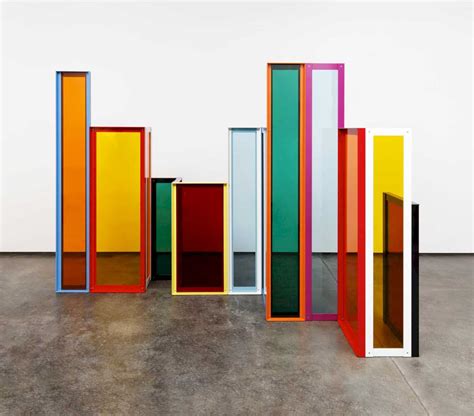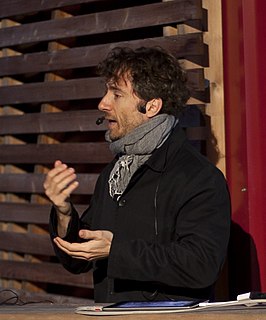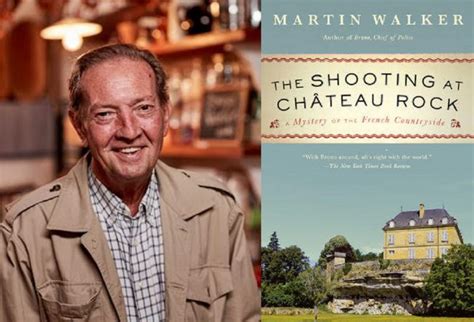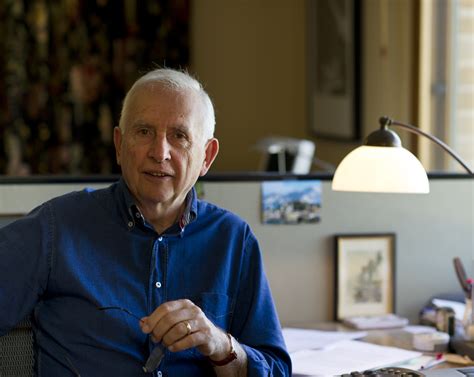Top 1200 Contemporary Society Quotes & Sayings - Page 2
Explore popular Contemporary Society quotes.
Last updated on November 15, 2024.
Contemporary American churches in particular do not require following Christ in his example, spirit, and teachings as a condition of membership-either of entering into or continuing in fellowship of a denomination or a local church.... Most problems in contemporary churches can be explained by the fact that members have not yet decided to follow Christ.
I like art that challenges you and makes a lot of people angry because they don't get it. Because they refuse to look at it properly. Rather than open their mind to the possibility of seeing something, they just resist. A lot of people think contemporary art makes them feel stupid. Because they are stupid. They're right. If you have contempt about contemporary art, you are stupid. You can be the most uneducated person in the world and completely appreciate contemporary art, because you see the rebellion. You see that it's trying to change things.
The individual has totally different interests from the society, because the society has no soul. The society is soulless. And if you become too much a part of the society, it will reduce your soul also to a non-entity. Beware, before you have lost your whole opportunity. Don't be a slave. Follow society to the point you feel is needed, but always remain master of your own destiny.
The musical culture in the United States has no doubt suffered severe setbacks, especially in funding, since the early 2000's. However, I've been amazed at the resiliency of those involved with contemporary music in this country. I think composers and those dedicated to contemporary music have reacted with tremendous creativity and resourcefulness.
There's just so many facets, I think, of the ignorance in our society that have to be corrected if we're really going to have a democratic society and a society that is just and that respects all of the members of this society regardless of who they are, what color they may be, what sexual orientation that they have or what gender, you know, they happen to be.
The contemporary tendency in our society is to base our distribution on scarcity, which has vanished, and to compress our abundance into the overfed mouths of the middle and upper classes until they gag with superfluity. If democracy is to have breadth of meaning, it is necessary to adjust this inequity. It is not only moral, but it is also intelligent. We are wasting and degrading human life by clinging to archaic thinking.
I have a British voice and a rather formal one at that, having been brought up in post-WWII Britain. My voice is perfectly suited to the sort of book I write, I think. It would not fit a contemporary, besides which I do not know enough about the contemporary world to write convincingly or comfortably about it!
I guess there was a little bit of a slight rebellion, maybe a little bit of a renegade desire that made me realize at some point in my adolescence that I really liked pictures that told stories of things - genre paintings, historical paintings - the sort of derivatives we get in contemporary society.
If we desire a society of peace, then we cannot achieve such a society through violence. If we desire a society without discrimination, then we must not discriminate against anyone in the process of building this society. If we desire a society that is democratic, then democracy must become a means as well as an end.
Any contemporary political re-statement of liberal and socialist goals must include as central the idea of a society in which all men would become men of substantive reason, whose independent reasoning would have structural consequences for their societies, its history and thus for their own life fates.
Today, journalists more than any other cohort of professionals, are responsible for the confusion that surrounds power and its criminality in contemporary society. As Janet Malcolm said in another context, 'Every journalist who is not too stupid or too full of himself to notice what is going on knows that what he does is morally indefensible.'
The complaints of contemporary writes, who deplore the increase of luxury and deprevation of manners, are commonly expressive of their peculiar temper and situation. There are few observers who possess a clear and comprehensive view of the revolutions of society, and who are capable of discovering the nice and secret springs of action which impel, in the same uniform direction, the bland and capricious passions of a multitude of individuals.
I think a lot of the people who feel out of step with contemporary society or feel that they've been left back economically or feel disaffected and are drawn to the Republican Party, they are looking for a news source that will tell them something they would like to hear and then is reassuring, emotionally rewarding, and confirming.
Consider in what way the industrial system developed upon capitalist lines. Why were a few rich men put with such ease into possession of the new methods? Why was it normal and natural in their eyes and in that of contemporary society that those who produced the new wealth with the new machinery should be proletarian and dispossessed?
[T]here are, at bottom, basically two ways to order social affairs, Coercively, through the mechanisms of the state - what we can call political society. And voluntarily, through the private interaction of individuals and associations - what we can call civil society. ... In a civil society, you make the decision. In a political society, someone else does. ... Civil society is based on reason, eloquence, and persuasion, which is to say voluntarism. Political society, on the other hand, is based on force.
The whole point is to take from our native culture and from contemporary culture without using one art form to mimic the other, so that our native identity remains the native identity, the contemporary identity remains the contemporary identity, and the mixing of these two musical identities creates a third musical identity.
As a general habit and general tendency, I prefer not to bog a piece down with a great number of transitory, contemporary references, because in the end, I'm concerned, not in an abstract way, but an actual way, with creating a world which has a universality to it - even though what goes on is made up of texture and detail, contemporary detail.
In contemporary society, advertising is everywhere. We cannot walk down the street, shop, watch television, go through our mail, log on to the Internet, read a newspaper or take a train without encountering it. Whether we are alone, with our friends or family, or in a crowd, advertising is always with us, if only on the label of something we are using.
If I were asked about what to do about the level of insecurity and anxiety in contemporary Australian society, I wouldn't start with politics and I wouldn't say too much about terrorism. I'd suggest as a first step, that you invite the neighbours over for a drink this weekend. Today a drink, tomorrow a barbeque, pretty soon, a community.
It is not just contemporary industrial society that is dysfunctional; it is civilization itself. We humans are born to be creatures of the land and the sea and the stars; we are relations to the animals, cohorts to the plants. Our well being, and the well-being of the very planet depend on our pursuance of our given place within the natural world.
I'm trying to discover - invent, I suppose - an architecture, and forms of urban planning, that do something of the same thing in a contemporary way. I started out trying to create buildings that would sparkle like isolated jewels; now I want them to connect, to form a new kind of landscape, to flow together with contemporary cities and the lives of their peoples.



























































